School-community partnerships refer to partnerships between schools and other community resources by integrating academics and community involvement to foster the learning and well-being of youth and their families.
Avoiding Implicit Bias in Classroom Observations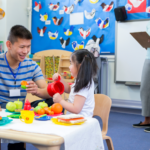
Classroom observations are a key tool in educational research and practice, used to evaluate teaching methods, assess student engagement and behavior, and gather data on classroom interactions to inform instructional strategies and policy decisions. However, observations are not immune to implicit biases—or attitudes, behaviors, and actions that are prejudiced in ...
Continue reading →Implementing Policies and Practices to Support LGBTQ+ Youth in Schools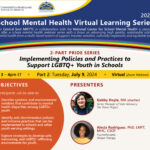
The Central East MHTTC in collaboration with the National Center for School Mental Health (NCSMH) offers a school mental health webinar series with a focus on advancing high quality, sustainable school mental health from a multi-tiered system of support, trauma-sensitive, culturally responsive, and equitable lens.
Continue reading →Supporting Students with Behavioral and Emotional Needs: A Conversation with Carl Sumi
In the latest episode of The SRI Homeroom podcast, Senior Principal Education Researcher Carl Sumi joined host Kori Hamilton Biagas to discuss strategies, interventions, and recommendations for educators, schools, and researchers hoping to meet that need head-on.
Continue reading →2024 National Strategy for Suicide Prevention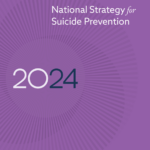
The 2024 National Strategy for Suicide Prevention is a bold new 10-year, comprehensive, whole-of-society approach to suicide prevention that provides concrete recommendations for addressing gaps in the suicide prevention field.
Continue reading →Classcraft Fact Sheet
Designed for whole-class instruction, Classcraft™ supports the craft of teaching by providing efficacious academic content and tools that foster a positive classroom climate. Classcraft enables consistent, seamless delivery of research-based academic lessons that gets students excited about school and increases their engagement. Pre-built, standards-aligned, whole-class instruction provides educators with real-time ...
Continue reading →Conversations with parents about YouTube: What are kids watching, and what are they learning?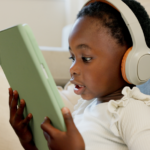
Toddlers and preschoolers today are spending more time watching videos on online streaming services like YouTube than in any other format.
Continue reading →BEST in CLASS: What Coaches and Teachers Say About It. Part 2: Teacher Perspectives
Practice-based coaching (PBC) promotes a strong collaborative partnership between teachers and coaches to facilitate the use of effective instructional practices. The PBC process includes skills instruction on BEST in CLASS practices, shared goals and action planning, implementation support, classroom observation, and reflection and feedback.
Continue reading →Coaching Early Educators on Behavioral Interventions: Coach and Developer Perspectives
In this presentation, we share coach and program developer perspectives on barriers and facilitators of coaching educators to deliver behavioral interventions in early childhood settings.
Continue reading →Promoting Mental Health and Well-Being in Schools: An Action Guide for School and District Leaders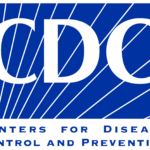
Schools are prioritizing students’ mental health, and there are many tools and resources to choose from. CDC created this action guide as a place to start. It can help school and district leaders build on what they are already doing to promote students’ mental health and find new strategies to ...
Continue reading →2024 School Mental Health Quality Guides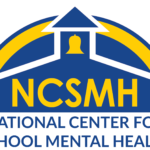
These 2024 editions contain major updates and an and easy-to-follow format complete with action steps, best practices, examples from the field, and more.
Continue reading →








